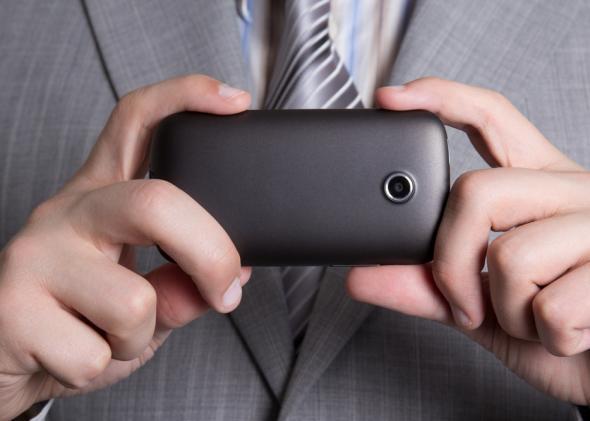Creeps, rejoice! Taking pictures up a woman’s skirt when she doesn’t know it is perfectly legal, according to the Massachusetts Supreme Judicial Court, which ruled Wednesday that the practice, called “upskirting,” is not covered under the state’s peeping Tom laws. The case involved one noble citizen named Michael Robertson, who was picked up on a Boston trolley in a sting operation after two fellow riders told the police that he had been taking pictures under unsuspecting women’s skirts. (In a fine act of sisterly revenge, one of the women who turned him in took pictures of him taking the pictures.)
The state ruled that Robertson could not be charged under the current law because one of the five criteria for being a “peeping Tom” was that “the subject was another person who was nude or partially nude,” and the women whose photos showed up on his cellphone were, like most riders on the Boston trolley, dressed in clothing at the time he took their pictures.
“A female passenger on a MBTA trolley who is wearing a skirt, dress, or the like covering [private] parts of her body is not a person who is ‘partially nude,’ no matter what is or is not underneath the skirt by way of underwear or other clothing,” the court said in a unanimous ruling written by Justice Margot Botsford. What is (or is not?) underneath the skirt, of course, can be found on various upskirting websites, where pictures of thighs, crotches, and panties abound.
The Massachusetts House speaker immediately vowed to close the loophole in the law. This shouldn’t be too difficult, as several states have already come up with decent language to do the same. Washington state, for example, passed a law a few years ago making it illegal to record or transmit “an image of another person’s intimate areas covered by clothing” when the image is taken in a public place without the person’s consent. But although this particular law may be easy to fix, the larger problem is how reluctant lawmakers are to recognize the myriad, creative ways new technologies have allowed men to humiliate women.
Upskirting is like an anonymous version of “revenge porn,” the practice of posting your girlfriend’s naked pictures online if you’re pissed at her. Upskirting, by contrast, is more passive and generally not directed at any one woman in particular. Air marshals do it. Commuters do it. Players do it, like this one who posted on an upskirting site:
I’ve been upskirting chicks, mostly at clubs, for almost two years. The club I go to is a great spot, real crowded, strobe lights going, loud music, so no one notices me sitting near the edge of the dance floor and if a woman in a skirt ends up by me I stick the cam under and snap.
Now even if this douche moved to a state where upskirting was illegal, it would still be perfectly legal in most states for him to post online all the pictures he already has on his cellphone, according to Danielle Citron, a law professor who supports the effort to make revenge porn illegal. In her forthcoming book, Hate Crimes in Cyberspace, Citron documents the way women’s lives can be ruined when someone posts a nude picture of them online that co-workers or employers or anyone else can easily look up. (One of the women she profiles had to change her name.)
The movement to end revenge porn is making some headway. Earlier this year the FBI arrested Hunter Moore, known as the kingpin of revenge porn, and charged him with paying for stolen photos. In Michigan, a judge awarded $300,000 to a woman whose nude photos had been posted online. California police recently arrested a man who runs a revenge porn site, and Gov. Jerry Brown signed a law banning the practice. The California law has its own loopholes. It does not apply to distributors of revenge porn, only the people who took the pictures. It only applies to pictures taken by someone else (which would cover upskirting, but not a selfie a girlfriend once sent). And the law requires prosecutors to prove that the poster intended to inflict emotional distress, rather than seeing the online pictures as inherently distressing.
Our own Emily Bazelon favors another model bill proposed by law professor Mary Anne Franks that “makes it a crime to ‘disclose’ an image, video, or recording involving nudity or sexual contact without the subject’s consent, ‘under circumstances in which the person has a reasonable expectation of privacy.’ ” To make sure the law covers upskirting, I might add a clause so it read: “nudity or sexual contact or a person’s intimate area covered by clothing.”
A dozen states are considering different versions of revenge porn laws, summarized here, some of which make posting someone’s nude pictures online without her consent a felony. The ACLU is concerned about the laws, because they criminalize use of photos that the posters legally own. ACLU lawyer Lee Rowland told NPR that a constitutional version of such laws would have four elements: “It must designate that the perpetrator had malicious intent, that his or her action caused actual harm, that he or she acted knowingly without consent, and that the victim had an expectation of privacy.” These requirements still don’t acknowledge revenge porn, or upskirting, as inherently harmful, but they come pretty close.
Moore used to present himself as a First Amendment bad boy, posing in pictures with women in bikinis and saying it was his right to “look at naked girls all day.” Then at some point he had a change of heart, telling Rolling Stone that “ruining people’s lives with naked pictures wasn’t, you know, the ideal job.” If even Moore can figure that out, legislators should be able to.
